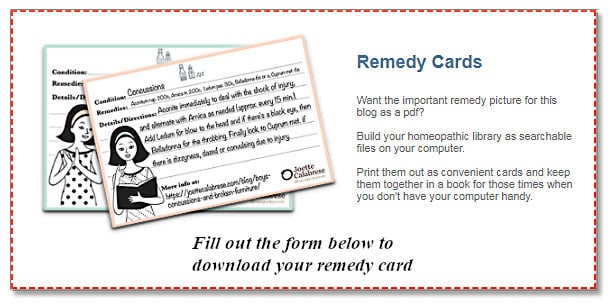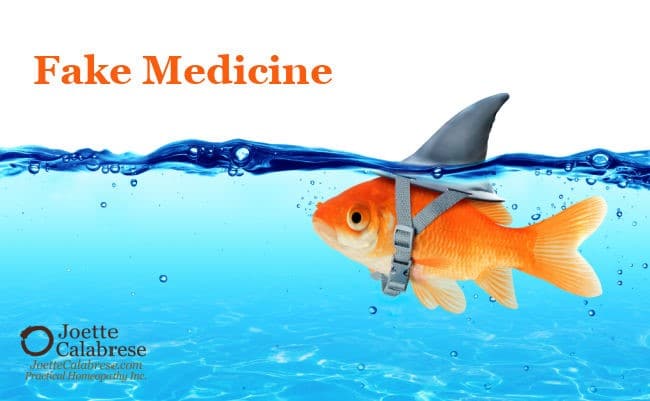Fake. Fake. Fake!
You’ve seen them in every corner of our society. Fake eyelashes, fake tans, fake designer handbags, fake IDs, fake news … even fake food!
Is there anything more disheartening than ordering a pizza, taking that first bite and realizing it’s slathered in fake cheese? Unless we make our pizzas at home, there’s really no way to be sure the ingredients aren’t fake … that is … until they hit our digestive system and make us sick.
Fake is usually synonymous with cheap, gaudy and disingenuous. So, the upshot of using the word “fake” is to encourage us to be wary, to question further, to distrust and examine carefully.
But how about medicine? Can medicine be fake?
Let’s think about that for a minute. Drugs of commerce are synthetic. They’re factory-made —something not found in nature. You see, medicine has been taken out of the hands of the mothers and grandmothers. Instead, medicine is now squarely in the hands of factories, industry and more recently even government!
The drug manufacturers don’t tell you what the drug really is. They don't tell you what it really does. And often well-meaning doctors are trained by pharmaceutical companies to believe synthetic drugs are the only way.
I want medicines that are truthful and celebrate the home, and celebrate authenticity. I don’t want something that merely covers up symptoms only to cause a more sobering condition in the future.
That means its lying to you … via stealth omission.
I want — no, I demand — medicines that are truthful. I want medicines that tell you what it is in its name — and I don’t mean some cutesy or lofty-sounding marketing manipulation of words.
With synthetic drugs, we must dig two, three or even four layers deep to discover just how dangerous and stealthy an injection, a pill or an ointment is.
But …
not so with homeopathy.
Homeopathy doesn’t lie to you. Everything you need to know about a homeopathic medicine is right in its formal Latin name. Everything you need is accessible, available to read — and not in fine print, mind you.
And this information hasn't changed! Most of the homeopathic medicines we use have been in use for centuries by the best medical minds in hospitals, clinics and private practices around the globe. There's nothing capricious or veiled about them.
There are no patents on homeopathic medicines, so no one owns them. Let me repeat: There are NO patents, so NO ONE OWNS THEM. This means they cost what a good medicine should cost — under $20 — and there’s no industry pushing them.
More importantly, we needn't be cajoled into using homeopathic medicines. We either use them, or we don't. There are no government mandates that require us to use them. No one forces us to give them to our children through threats that social services will come knocking at our doors or our child will not be allowed to enter school.
However, learning to depend on drugs of commerce for sinusitis, antibiotics for UTIs, steroid ointments for rashes or acetaminophen for headaches is learned — much the same way language, dress and behavior are learned. And that dependency is buried in a deep and inaccessible part of our psyches. And so, it’s become a part of our culture.
My friends, we must widen our gaze and not stay focused on the world from the myopic view.
Good medicine is medicine that people love — authentically, naturally and wholeheartedly. Good medicine is one that people are happy — even proud — to give to their children and elderly parents.
Homeopathy is the honest medicine.
So, what about that fake cheese we inadvertently ingested on our take-out pizza?
Homeopathy counters fake with honesty, as Pulsatilla nigricans 30 has been shown to address fake-dairy digestive disasters when employed as an SOS (as needed until very much better).
Since we never know when fake might fool us, let’s add Pulsatilla to our list of must-have homeopathic medicines to add to our arsenal. The rest of the world can keep their fakes; we’ll stick to the real and honest.
Now, how would you have learned when and how to use this little medicine if you hadn’t read it here?
Why, from becoming a member of my Gateway to Homeopathy Study Group that’s wrapping itself around the world one family at a time!
Pass on the good news of homeopathy … the honest medicine!
Warmly,
P.S. Speaking of fake, Big Pharma is concerned — as it always has been — as homeopathy regains exponential popularity in the United States.
In this week’s Memo to Mighty Members, I’ll share some very interesting legal wranglings currently underway. It’s fascinating information that every proponent of homeopathy should be aware of. Look for it, as usual, this Thursday!
If you haven’t joined Joette’s Mighty Members, what are you waiting for? My Mighties enjoy all sorts of benefits:
- Memos (which are extra weekly blog posts on topics I don’t feel comfortable sharing in a public venue)
- Musings (videos of my interests that I want to share)
- Remedy Card booklets,
- Remedy Reference Guides (downloadable e-books containing my blogs going all the way back to 2013)
- A safe discussion group without the censorship of public social media forums
- A Facebook-free place to participate in my Monday Night Live video events
- More perks currently in development
And all of my Mighties qualify for a 10% discount on course purchases. (If you need assistance getting your discount, email [email protected] for more information.)
There’s no better time to join than now!







Thank you Joette for being so open and honest about the fake medicine and Big Pharma! I am 52 years old and treated my Graves Disease with herbs when I was threatened by my endocrinologist and was told I would die if I didn’t eradicate my thyroid gland. Well, after 15 years I can say I still have my gland in tact and disease free! And at 52 I have never and will never have a mammogram or colonoscopy! I had “COVID” twice and used homeopathy to heal myself and my family. I thank you for your information as I learned and use your advice often! Keep up the great work!!
Keep up the great work as well, Angela!
Pulsatilla was the first remedy I thought of when my husband started having serious issues with dairy (especially ice cream.) Unfortunately it didn’t help, but I’m not one to give up that easily. I remembered you also mentioned “Aethusa” and “Lac defloratum” for dairy intolerance on a couple of your Facebook Live videos. So, we tried them both together (200c), within 30 mins before consuming dairy— BINGO!! He’s able to eat ice cream and cheesy pizza and sausage gravy with our family once again. Thank you, Joette, for introducing us to the polite medicines that have once again saved the day for our family 🙂 Looking forward to the Gateway I live videos!
Very well said…
I am wondering which remedy would work for getting glutenized!
Joette, even psychiatrists deliver fake treatment. Their drugs are nothing but chemical straight jackets which have a proven recovery rate of point zero zero zero five percent. Psychiatry is such quackery that I’ve just written a book about it – and it will be in print soon. You are right on about all the fake things around us and why homeopathy is so important!
Also, re Vitamin D: you’re right again, Joette. Doctors are into the fad of prescribing “Vitamin D,” which isn’t a vitamin at all, it’s a precursor to a steroid. Scientists have found that we’re typically low in “D” because Cell-Wall-Deficient bacteria consume it and CWD bacteria are the real cause of “autoimmune” disorders. The immune system isn’t stupid – it isn’t attacking its own body – it’s attacking the CWD bacteria hidden in those tissues. (Research by Lida Mattman, PhD)
Interesting association with Fake food. In the “Food that Built America”, the factors to consider were food scarcity, growing food, keeping it fresh, and delivering it from farm to table without it going bad, to feed a nation.
Fake food is quick cheap, and wards off starvation. It’s a temporary fix, until one can fuel up on nutritious whole foods.
Unfortunately, the money men learned that the public can be easily fooled, and profits can be made.
In the 18C Hahnemann grew weary of watching his peers kill the patient with barbaric treatments so he dedicated his life to find “REMEDIES”. Something that actually works and can cure disease.
True healing takes time. Western culture motivates a Fast & Cheap mind-set from our profitable history with food.
Until we educate ourselves to other possibilities, and we change our habits demanding quality, the markets will profit off our ignorance. This includes the drugs they sell us, and mandate for us.
Nature is the real deal. Humanity is organic, as is our natural world, it’s wise to have true healing with pharmacognosy (Homeopathy).
I requested and received a link for this post, but when I click it has a 403 error “Forbidden”
Try again. And it may be your browser.